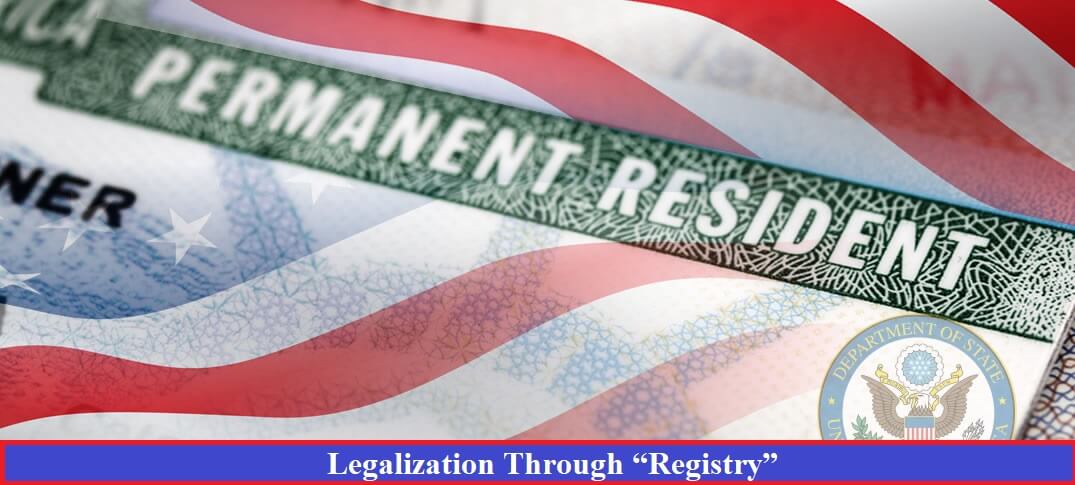Current immigration law contains a provision called “registry” that allows certain non-citizens who are long-term residents of the United States, but who are either undocumented or present in the country under some sort of temporary immigration status, to “register” for Lawful Permanent Resident (LPR) status. In order to qualify, individuals must have entered the country on or before a specified date (known as the “registry date”) and must demonstrate good moral character and continuous residence since their entry. After its creation in 1929, Congress advanced the registry date four times, most recently in 1986, when the date was set at January 1, 1972—meaning that only non-citizens who entered the United States by that date are eligible to apply for LPR status through registry. This date is now so far in the past that few individuals are eligible. However, Congress has the power to advance the registry date again at any time, which would potentially allow millions of non-citizens to become LPRs and, ultimately, U.S. citizens.
History of the Registry Provision
The original registry provision created in 1929 applied to any non-citizen who met the following conditions: entered the country prior to June 3, 1921; had continuously resided in the country since entering; demonstrated “good moral character”; was not subject to deportation under U.S. immigration laws; and for whom a record of lawful admission was not available. The registry provision was amended in 1940 and the registry date advanced to July 1, 1924. However, a more substantive revision took place in 1958.
Continúe leyendo en https://www.inmigracionyvisas.com/a5257-Legalization-Through-Registry.html


